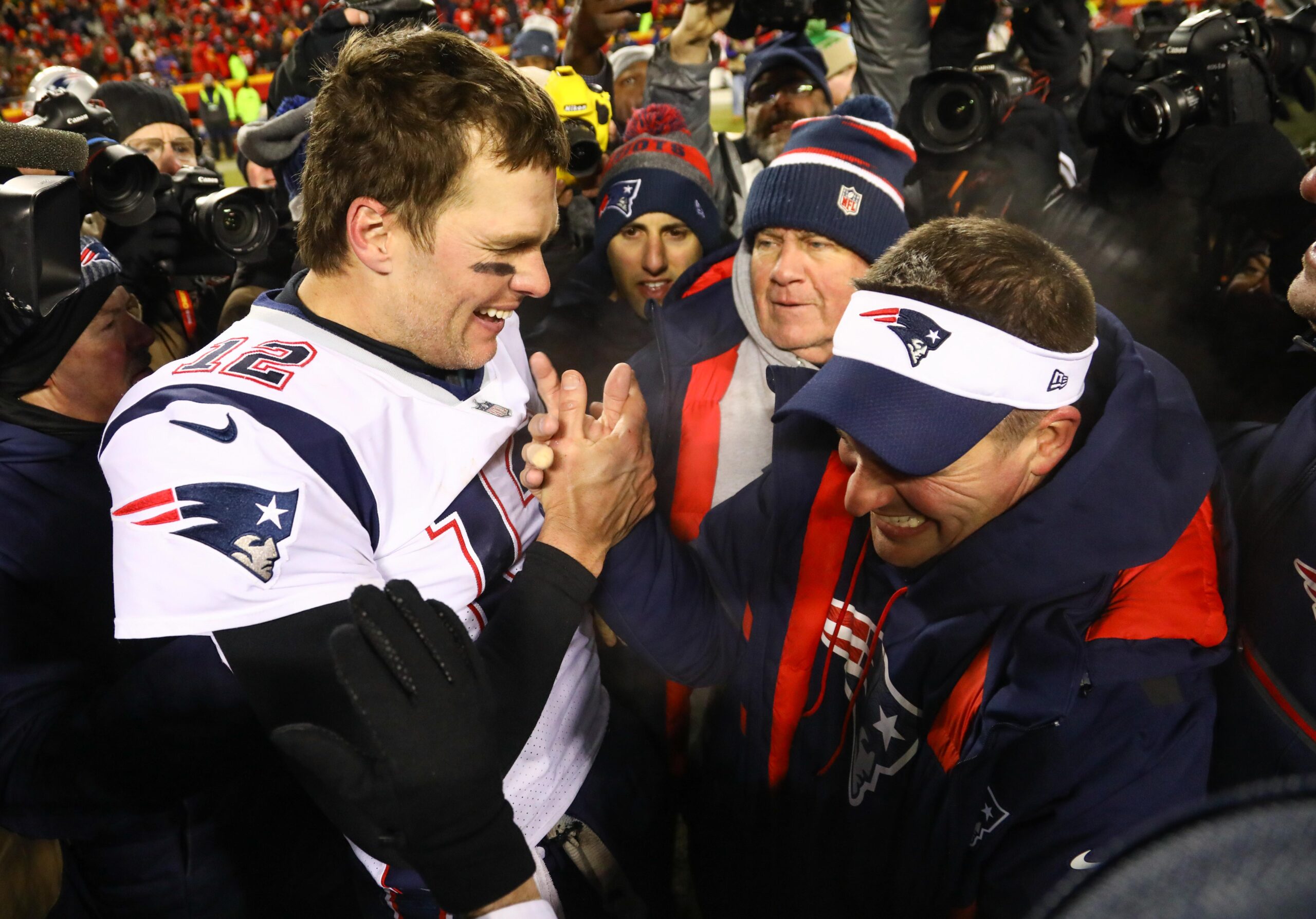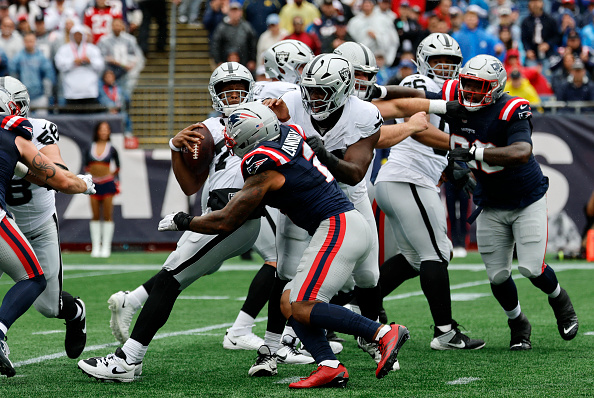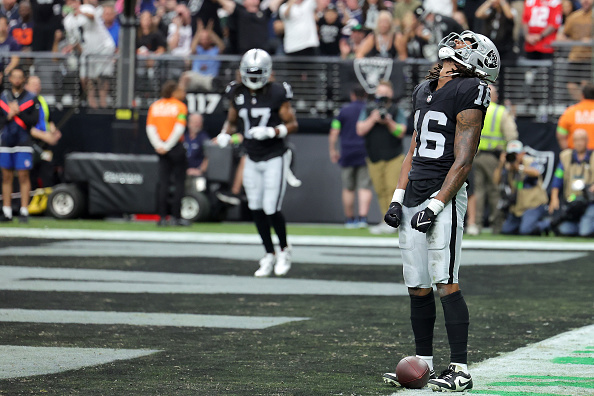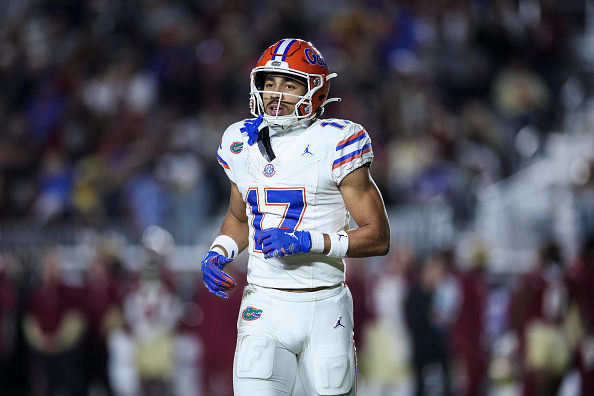Before we get into the depth of this article, note that it is based off of the belief that Josh McDaniels has control of both the offensive play calls as well as the personnel that makes up the offense. Being he has been with Bill Belichick for so long and has been considered the favorite to be the next head coach in New England, this assumes Belichick trusts McDaniels fully with the offense. That being said, here is why McDaniels is responsible for the lack of offensive production.
Surprisingly enough, it doesn’t start with play-calling. A majority of plays through 12 weeks of the season have been a variation of what New England has run for the last 20 years. They haven’t switched up too much. The majority of both their running and passing games come from the inside. What has changed has been the personnel.
The beginning of the “downfall” started in April of 2017. The 2017 draft was a flat-out miss by everyone involved, but we will stick to the offense for the sake of the category. This is a draft that saw JuJu Smith-Schuster, Cooper Kupp, Chris Godwin and Kenny Golladay taken anywhere from the late second to late third round. The Patriots swung and missed on four players, which included two offensive linemen and two defensive linemen. After a Super Bowl 51 victory, Tom Brady got another weapon in deep-threat Brandin Cooks. That seemed to make up for the lack of draft success.
A year later, New England’s offense broke apart and the team had to find players to replace what they had lost. Danny Amendola, Nate Solder and Dion Lewis had all left via free agency and New England traded Cooks to receive another first-round pick. Here is where it starts to get interesting.
With the 23rd pick in the 2018 draft, the Patriots selected Isaiah Wynn, an undersized (although dominant) tackle from Georgia. With the loss of Nate Solder, Wynn was supposed to be the player that filled in to protect Brady’s blindside. In training camp, Wynn tore his Achilles, keeping him out for the season. In a corresponding move, the Patriots brought in Trent Brown, who turned out to be one of the best left tackles in football. He was signed by the Raiders the following off-season.
As for Wynn, even if he was a bust, the Patriots had another pick at 31. They could have gone skill position at 23, but they waited until 31. In the process, New England missed on two of the top receivers in the draft, D.J. Moore and Calvin Ridley. In just his second season, Moore is 20 yards away from 1,000 with still four games left. Calvin Ridley has turned into a No. 2 option behind Julio Jones in the Falcons’ high-powered offense. Ridley himself has 790 yards on the season and could reach a 1,000-yard season. As for Isaiah Wynn, he has played four games in his career to date and has looked like nothing more than an average left tackle.
As we move down to the 31st pick in the draft, the Patriots selected running back Sony Michel, a supposed three-down back who had the capability to not only hit holes hard but also be a good pass-catcher out of the backfield, similar to what Dion Lewis was the year before.
What Michel turned into was quite the opposite. Michel ended up being an early-down running back with great vision who was able to run behind his offensive line all the way to a Super Bowl victory. While a running back like that is valuable, they are also very expendable. We’ve seen Latavius Murray as an example this year catch fire when Alvin Kamara went down for the Saints running behind a strong offensive line. When Michel had a great offensive line, he was able to succeed. However, this year, he has shown that his ability to make people miss and catch balls out of the backfield is sub-par.
The players that went after him may be even more of a reason to blame McDaniels. Four picks after Michel, his backfield partner Nick Chubb was taken. At least so far, Chubb has easily been the better back, racking up yards in Cleveland despite having a horrible offensive line. Four picks after that, current Broncos No. 1 receiver, Courtland Sutton, was taken. Sutton will be another name to pass 1,000 yards on the season; he has been a vital part of the Broncos offense. Even with another pick in the second round, New England went with Duke Dawson, a corner who was cut before the start of the 2019 season. D.J. Chark, Dallas Goedert and James Washington were all available in the second round and were all passed over by the Patriots.
In 2019, the Patriots continued to seek out help at skill positions. This led to them drafting N’Keal Harry in the first round. After being put on IR, Harry has been less than effective in his return. Through three games, he’s caught four passes for 28 yards and a touchdown, including Sunday night’s game in which he did not record a catch and only one target.
The issue within the offense is that Tom Brady simply does not trust his targets, and nor should he. Here is the first example as to why. The interception Brady threw on Sunday night could have been avoided. Harry ran the route like a rookie and did not fight for the ball, an almost guaranteed way to get on Brady’s “do not trust list.”
Roby ran the route better than Harry did. Harry doesn't finish the route and gets beat to the spot. Still, a stare down/force by Brady. Bad route too. #Patriots pic.twitter.com/rNAYA6CzGk
— Evan Lazar (@ezlazar) December 2, 2019
The second example was picked up by former Lions quarterback, Dan Orlovsky. Brady audibles to Phillip Dorsett, who sees the audible and does not adjust to it.
Been saying this for weeks now for @Patriots offense. Outside of the physical-12 has trust in 1 guy. Edelman. That’s it…and it’s warranted. Watch 👇🏼 below. @MikeGiardi @patspulpit #SNFonNBC #Patriots @RochieWBZ @BenVolin pic.twitter.com/Vf8mbaUqXg
— Dan Orlovsky (@danorlovsky7) December 2, 2019
Let’s rewind the clock a little bit. Instead of Sony Michel, Isaiah Wynn and N’Keal Harry, put Nick Chubb, Calvin Ridley and Dallas Goedert on this team. Are the Patriots a better club? You decide.







